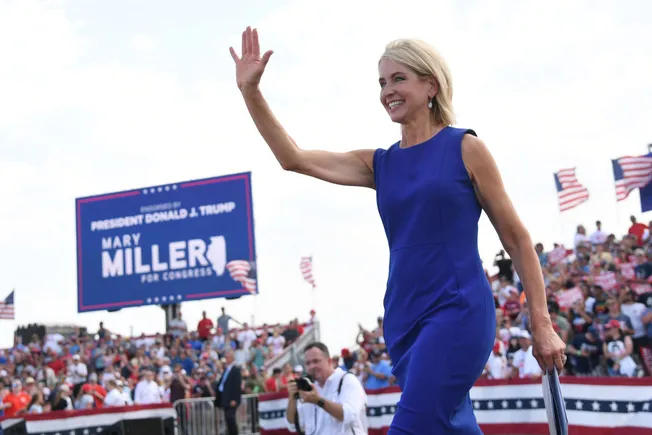Iesha Berry is vice president and chief talent and culture officer at Docusign.
The workplace is transforming before our eyes. Driven by rapid technological advances, shifting workforce expectations and the push for flexible and healthy workplaces, organizations are rethinking their operations. For HR professionals, this is more than a moment of change — it’s a call to action.
We must reimagine how we attract, retain and nurture talent while ensuring our strategies remain agile in an era of constant disruption. In 2025, four key trends will redefine the HR landscape, presenting opportunities for leaders to set ambitious goals and launch transformative initiatives that will shape the future of work.
1. AI will redefine talent acquisition
Used responsibly, AI amplifies — not replaces — the human connection, transforming hiring into a strategic advantage that attracts top talent while fostering inclusion. By automating repetitive tasks like scheduling interviews or managing candidate pipelines, talent acquisition teams within HR can make better use of their resources and focus on building relationships internally and with candidates, and strategically aligning talent strategies with business goals.
But AI’s potential extends far beyond efficiency. It empowers organizations to make hiring more equitable and data-driven. For instance, stakeholders have indicated AI can uncover biases in job descriptions, identify talent gaps and deliver insights to build diverse and high-performing teams.
However, integrating AI requires a deliberate approach, with transparency and accountability at the forefront. AI is reshaping talent acquisition by making hiring faster, smarter and more strategic.
2. Consistency will enhance the candidate experience
Addressing inefficiencies in the interview process across roles, regions and domains will be critical as more organizations move toward skills-based hiring and will support an enhanced candidate experience. In 2025, HR leaders should prioritize designing interview frameworks that are structured and scalable — ensuring that every candidate, regardless of role or location (considering and complying with local laws), goes through a streamlined, equitable and high-quality hiring process.
By identifying the core, consistent and critical elements of the interview process across different functions (i.e., every candidate will be asked questions related to key behaviors or company values), organizations can create frameworks that balance thorough assessment with efficiency. For example, while an engineering candidate may traditionally undergo 15 hours of interviews while an operations candidate completes only five, a structured framework (core and common) can consolidate essential evaluations into a standardized experience — optimizing interview time while maintaining rigor.
This approach not only enhances fairness and consistency but also improves hiring quality and speed, reduces candidate fatigue and fosters a more positive candidate experience. Standardizing interview frameworks across geographies and job functions will be key to attracting top talent in an increasingly competitive and globalized workforce.
3. HR will drive cross-functional leadership
The future of work demands leadership that transcends silos and fosters collaboration across functions. HR professionals are uniquely positioned to connect the dots — working across departments and at every stage of the employee lifecycle, from hiring and onboarding to career development and retention.
Cross-functional collaboration isn’t about shifting responsibilities but uniting around a shared vision. HR leaders must act as connectors and facilitators across an organization, bringing varied perspectives to the table and enabling systems that support meaningful collaboration. The outcome? Organizations that are innovative and inclusive, but also adaptable in the face of change.
4. Resilient leadership will be essential
Resilience is no longer a soft skill — it’s a critical leadership capability. HR leaders who can adapt to ambiguity, respond to challenges and foster trust will define the next era of the function.
Resilience starts with self-awareness and recognizing the impact of personal well-being on effective leadership. HR leaders must model behaviors that promote balance and health while creating environments where employees feel supported.
Organizations can bolster resilience by investing in leadership development, prioritizing mental health initiatives and creating inclusive work environments. When resilience becomes a muscle embraced at every level, it forms the foundation for sustained growth and innovation.
The path forward
The world of work is evolving faster than ever. It requires us to be nimble and strategic and the changing landscape brings opportunity to lead with purpose and intention. HR professionals are uniquely positioned to influence how organizations adapt to shifts — not by reacting but by driving transformation that leads to meaningful progress.
Whether it’s harnessing the power of AI, scaling interview frameworks, breaking down silos through collaboration or championing resilient leadership, these trends remind us of the critical and strategic role HR plays in shaping the future of work. This is our moment to lead, to challenge the status quo and to create workplaces where everyone can thrive.






Leave a Reply